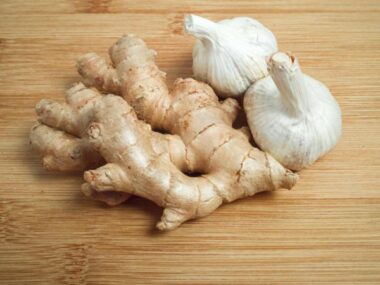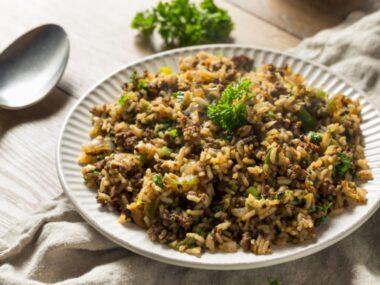Can You Eat Salami in Pregnancy
Pregnancy constitutes a pivotal period within a woman’s journey when proper nutrition becomes paramount for the health of both the mother and the developing baby. As expectant mothers navigate their dietary choices, certain food items raise concerns due to potential risks they may pose to the pregnancy. One such item is salami, a popular cured meat loved by many. In this blog post, we’ll explore the safety of consuming salami during pregnancy, its potential benefits and risks, and provide practical recommendations for making informed dietary decisions.
Understanding Salami
Salami constitutes a variety of cured sausage crafted from meat that undergoes fermentation and air-drying processes, typically pork, beef, or a combination of both. It is seasoned with various spices, such as garlic, pepper, and fennel, which contribute to its distinctive flavor. The curing process involves the use of salt and other preservatives to prevent bacterial growth and extend shelf life.
Nutritional Profile of Salami
Salami is a rich source of proteins, vitamins, and minerals. It contains essential nutrients like iron, zinc, vitamin B12, and selenium, all of which play vital roles in maintaining a healthy body. However, it is also high in saturated fats and sodium, which can have adverse effects if consumed excessively.
Read >>> ICD-10-CM Code for Anemia in Pregnancy
Salami and Pregnancy: The Concerns
1. Listeriosis Risk
One of the primary concerns associated with consuming salami during pregnancy is the risk of listeriosis. Listeriosis is a bacterial infection resulting from the consumption of contaminated food, with Listeria monocytogenes being the responsible bacterium, which can lead to severe complications for both the mother and the baby. Due to alterations in their immune system, pregnant women are more prone to listeriosis.
2. High Sodium Content
Excessive sodium intake during pregnancy can contribute to water retention and increase the risk of gestational hypertension. Moreover, high sodium levels can also impact fetal development negatively.
3. Nitrate and Nitrite Content
Salami is composed of nitrates and nitrites, which are used in the curing process. While nitrates can convert to nitrites and then to nitrosamines (potentially carcinogenic compounds) during digestion, the link between nitrate/nitrite intake and adverse pregnancy outcomes is not yet well-established.
4. Saturated Fats
Salami is high in saturated fats, which, when consumed in excess, can raise cholesterol levels and increase the risk of heart disease.
Read >>> Is Ashwagandha Safe to Take During Pregnancy?
Moderation is Key
The good news is that you don’t need to eliminate salami from your diet if you are pregnant and enjoy it occasionally. The key is moderation and being mindful of the source and preparation methods.
1. Choose Quality Products
Opt for high-quality salami from reputable sources. Look for labels that indicate it’s been properly processed and follows food safety standards.
2. Check Ingredients
Read the ingredient list to ensure no harmful additives are present. Avoid salami products that contain artificial preservatives or excessive sodium levels.
3. Cook Thoroughly
If you are worried about listeriosis, you can cook the salami thoroughly before consumption, which can help kill any harmful bacteria.
4. Balance Your Diet
Maintain a well-rounded diet by incorporating a diverse selection of nourishing foods, including lean proteins, fresh fruits, vegetables, whole grains, and dairy products. This will ensure you and your baby receive all the necessary nutrients required for a pregnancy that promotes good health.
Read >>> 1111: How It Connects to Your Pregnancy Journey
Things to do if I Ate Salami While Pregnant
If you accidentally ate salami while pregnant, there’s no need to panic. While there are some concerns associated with consuming salami during pregnancy, a one-time consumption is unlikely to cause significant harm. Here’s what you can do:
1. Stay Calm
The first thing to do is to remain calm and not stress over the situation. Stress is not good for you or your baby, and in most cases, a single instance of consuming salami is not likely to cause any immediate harm.
2. Monitor for Symptoms
Keep an eye out for any symptoms of foodborne illness, especially those associated with listeriosis. These symptoms may include fever, muscle aches, nausea, vomiting, and diarrhea. Listeriosis symptoms can appear within several days to a couple of weeks following the consumption of contaminated food.
3. Consult with Your Healthcare Provider
If you’re worried or experience any unusual symptoms, reach out to your healthcare provider immediately. They can provide appropriate guidance and monitor your health and the baby’s development if necessary.
4. Increase Hydration
Staying well-hydrated aids in the process of eliminating waste from the body and any potentially harmful bacteria from your system.
5. Focus on a Balanced Diet
Going forward, focus on maintaining a balanced diet that includes a variety of nutrient-rich foods. This will help ensure that both you and your baby obtain the essential nutrients required for a wholesome pregnancy.
6. Avoid Salami and Other Risky Foods
To minimize potential risks, it’s best to avoid salami and other high-risk foods during the remainder of your pregnancy. Opt for safer protein sources like well-cooked lean meats, poultry, fish, eggs, and plant-based proteins.
7. Follow Food Safety Guidelines
Pay attention to food safety practices, including proper food handling, storage, and preparation, to reduce the risk of foodborne illnesses.
8. Cook Thoroughly
If you are unsure about the safety of a particular food, consider cooking it completely eliminate any potentially harmful bacteria that might be existing.
Read >>> BBhugme Pregnancy Pillow Review
Conclusion
In conclusion, while salami consumption during pregnancy may raise concerns due to potential risks, it can still be enjoyed in moderation when certain precautions are taken. Always prioritize food safety by choosing high-quality products from trusted sources, checking labels for harmful additives, and cooking thoroughly when necessary. Remember to maintain a balanced diet and seek guidance from your healthcare professional for tailored recommendations on your dietary choices during pregnancy. Through making well-informed choices, you can enjoy a safe and healthy pregnancy journey without having to give up all of your favorite foods.




